Items
Contributor is exactly
Ashley R. Tibollo
-
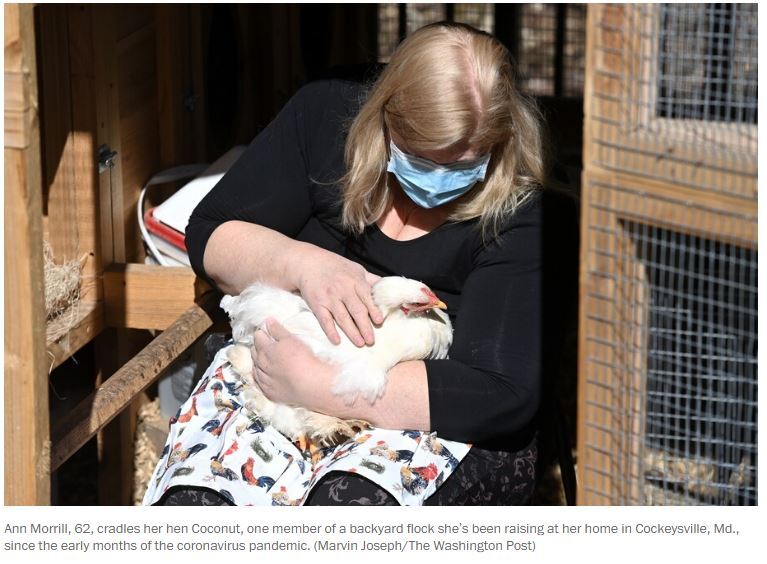 2021-03-29
2021-03-29Her pet chickens were a source of emotional support during the pandemic. Then, the predators came.
Though research in this area is often qualitative and findings have at times been disputed, studies suggest that interacting and forming bonds with animals, such as dogs, might have a positive effect on a person’s well-being. During the past year, in particular, many people have reported that pets played an important role in helping them cope with the physical and psychological tolls of pandemic life. Animals provide companionship and can offer unconditional affection, which people don’t always get from other humans, said Lori Kogan, chair of the Human-Animal Interaction Section of the American Psychological Association and a professor at Colorado State University. Owning pets can also help people maintain a schedule and feel a sense of responsibility, Kogan said. Although existing research has largely focused on more traditional pets, she said, “raising chickens can provide an incredible amount of emotional support.” Plus: “Chickens have their own little personalities. They’re very funny. They’re very cute.” For Kelly Rutkowski, 38, of Ashland, Va., her chickens are her “therapy.” “Just going out with them and just caring for them, interacting with them, it makes me happy,” said Rutkowski, founder of the Adopt a Bird Network, a nonprofit organization dedicated to raising awareness of adoptable birds in animal shelters and rescues nationwide. In addition to hens, Rutkowski also keeps a “bachelor flock” of roosters. “I know we’re missing out on being able to go out and do things and stuff, but being with the chickens is just an experience which makes it easier,” she said. “I’d say they’re just as fulfilling as a dog or cat.” -
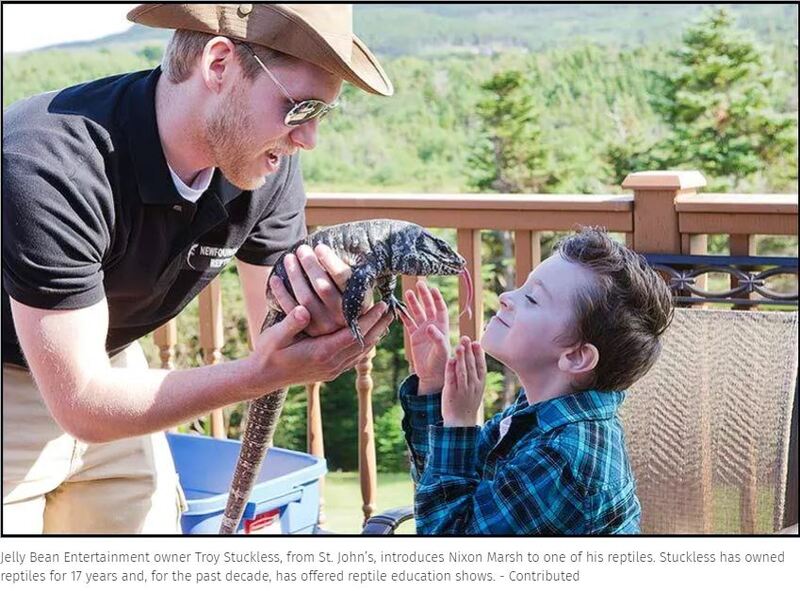 2021-02-22
2021-02-22Leaping lizards! Reptiles in-demand pets during pandemic
Can't find a puppy since the pandemic began? You're not alone - and that's left East Coast residents desperate for companionship looking at new avenues. One of the most popular options? According to Google Trends, Atlantic Canadians are all about lizards. -
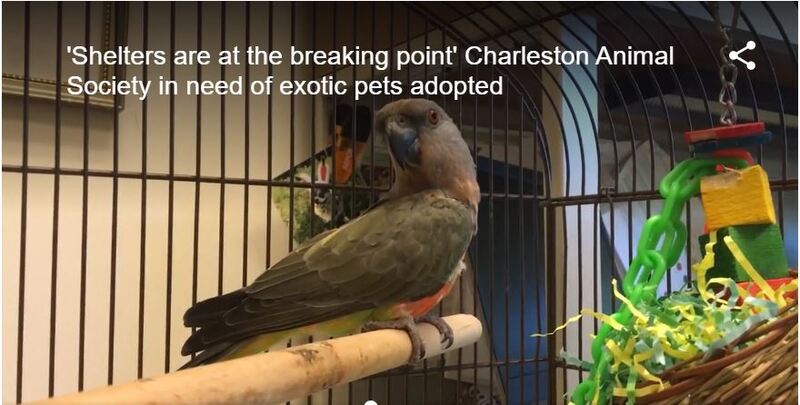 2021-08-12
2021-08-12Charleston Animal Society working to get exotic pets adopted as shelters hit breaking point
NORTH CHARLESTON, S.C. (WCBD) – Thousands of animals across South Carolina are in need of adoption including some more exotic options you may not think about taking home with you at the Charleston Animal Society. “Right now, we have a bearded dragon which is a very cool lizard and they have special needs, special diet as well as two bunnies, and two guinea pigs, so that’s a lot of animals that are extra care at the Charleston Animal Society as well as needing homes,” said Kay Hyman who is the director of community engagement at Charleston Animal Society -
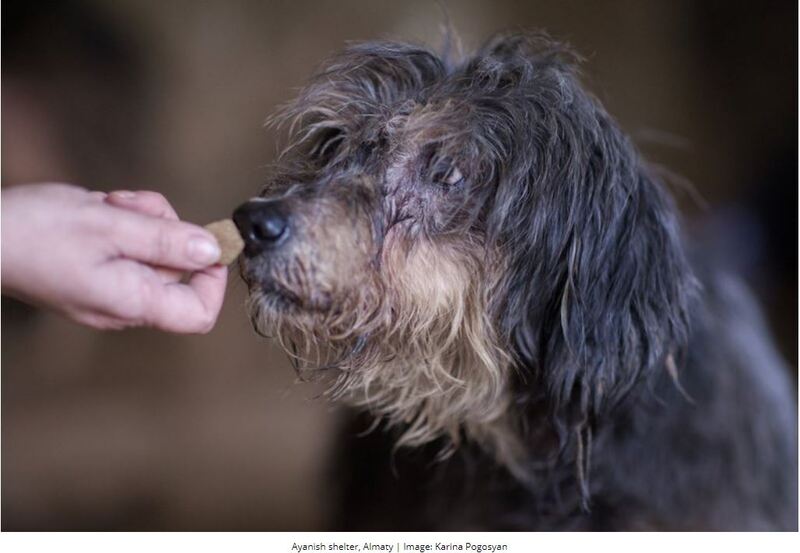 2021-03-10
2021-03-10Pandemic downturn leads to animal abuse crisis in Kazakhstan
Kazakhstan is facing a multitude of problems, including a weak currency, dependence on fluctuating oil prices, a closed political system and dire human rights. Amid all of this, the fate of its abused pets may seem trivial. However, passionate activists are rising up to take a stand for animal rights. As the Central Asian state’s socio-economic conditions have worsened over the past year due to the pandemic, more pet owners have been abandoning their animals or committing violence against them. And just as animal shelters are more needed than ever, they’re grappling with an influx of animals, a lack of funding and a legislative vacuum on animal rights. -
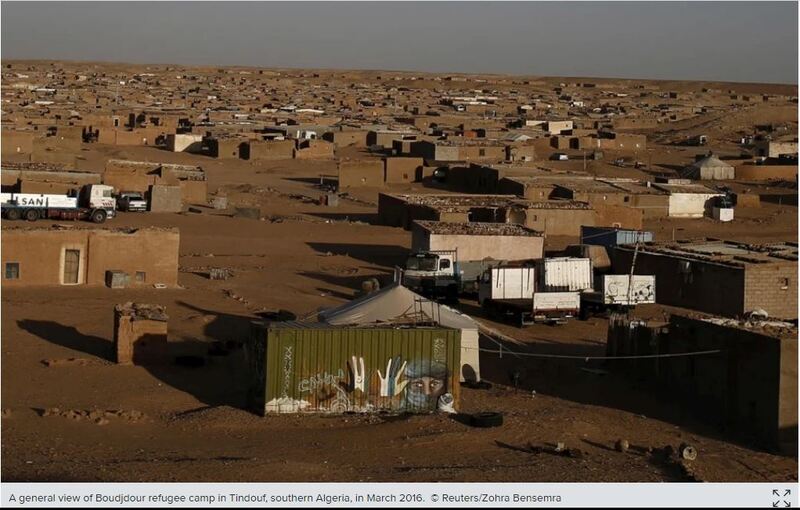 2020-09-01
2020-09-01Sahrawi refugees in COVID-19 lockdown hit by livestock epidemic
Refugees from Western Sahara in camps in Algeria’s Tindouf province lose animals to livestock epidemic, while coronavirus restrictions wipe out other means of income. -
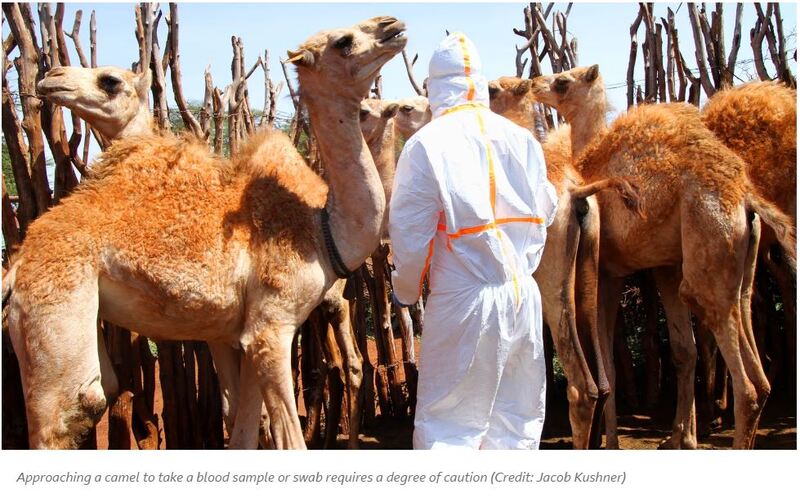 2021-01-25
2021-01-25Why camels are worrying coronavirus hunters
In northern Kenya, researchers are working to prevent a dangerous coronavirus – Mers – from jumping from camels to humans again. But climate change is making their job more difficult. I It’s thought that Covid-19 originated in animals before jumping to humans. Now experts are warning that the chances are the next pandemic will, too. Seventy-five percent of the newly emerging diseases currently affecting people originate in animals, according to Predict, a US government-funded collaboration by infectious disease experts across the globe. Already, Predict scientists have identified 1,200 new zoonotic, or animal-borne, diseases. But scientists estimate there are some 700,000 more zoonotic diseases we don’t even know about yet. ... “That infection” is Middle East respiratory syndrome (Mers), a novel coronavirus that so far has proven to be at least 10 times more deadly than Covid-19. It was discovered in Saudi Arabia in 2012. By 2016, the World Health Organization (WHO) had identified “1,761 laboratory-confirmed cases of infection with Mers-CoV, including at least 629 related deaths”. Later that year, an outbreak at a hospital raised the alarm that it’s not just camel herders who are susceptible to the disease, but anyone at all. But while camels can be carriers, the Mers threat to humans is mostly man-made. As human-induced climate change makes droughts more frequent, prolonged, and severe, herders have had to abandon cows and other livestock for camels because only they can survive weeks without water. The result is a growing number of camels in close contact with humans – the perfect conditions for the spread of a deadly disease. Mers causes the same sorts of respiratory system complications as Covid-19, including pneumonia. Symptoms often start with nasal congestion, a cough, chest pains, or difficulty breathing. In the worst cases, it may cause fibrosis – irreversible scarring – in the lungs. This can be deadly. More than one-third of all humans known to have contracted Mers have died from it, according to the WHO. Once it jumps from animals to humans, a Mers outbreak could grow rapidly. Saudi Arabia alone saw 15 people infected in December 2019 and January 2020 – three of whom were hospital workers infected by their patients. “The fact that RNA viruses such as coronaviruses mutate means you never know what could happen with that particular virus,” says Zimmerman. -
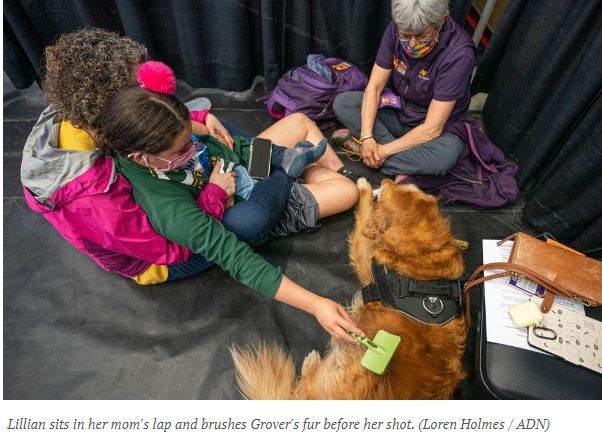 2021-05-22
2021-05-22Meet Grover, a golden retriever bringing calm to Alaskans anxious about their COVID-19 vaccination
Grover and his owner, Karen Loeffler, are with the group NATIONAL Crisis Response Canines, which has teams that respond to crises and anywhere that people have stress and anxiety. Loeffler, the former United States attorney for the District of Alaska, regularly brings Grover to court to calm people when they are testifying in a trial or grand jury. The Anchorage OEM connected Alicia with Loeffler’s group, and Lillian sat with Grover on the floor of the Alaska Airlines Center for an hour, petting him, brushing his fur and giving him treats until she was calm enough to get the shot. A majority of children exhibit needle fear, along with up to 20-30% of young adults, according to a pre-pandemic meta-analysis. The 2018 study noted that 1 in 6 health care workers avoided the influenza vaccine because of a fear of needles, and the authors encouraged further study of approaches that could alleviate fear during injections. -
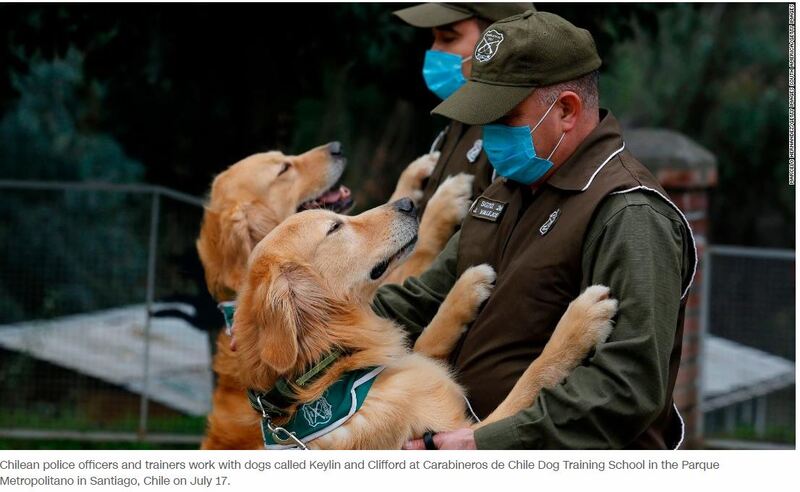 2020-07-22
2020-07-22Chile wants Covid-19 sniffer dogs to help reopen public spaces
Police dogs in Chile are being trained to sniff out Covid-19 in humans, with hopes that they will facilitate the reopening of busy public spaces including malls, sports centers, bus terminals and airports this fall. The so-called "bio-detector" dogs are expected to complete training by mid-September and will be deployed to places with high concentrations of people, according to the Chilean police. -
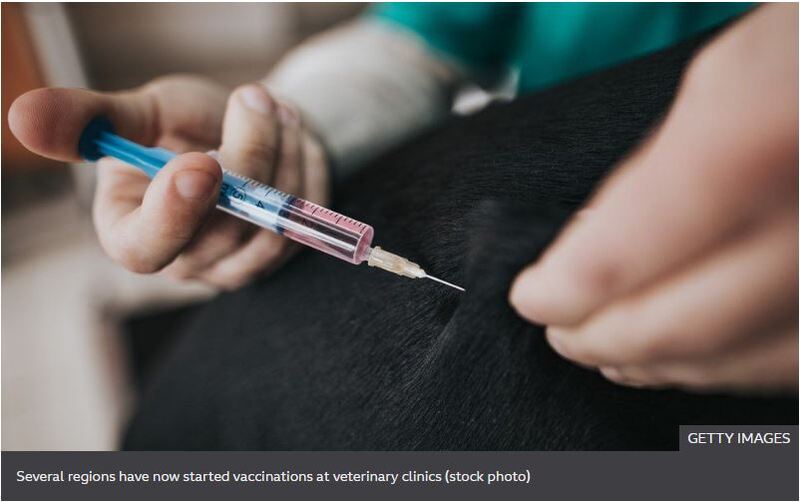 2021-05-26
2021-05-26Covid: Russia starts vaccinating animals
Russia has started vaccinating animals against coronavirus, officials say. In March, Russia announced it had registered what it said was the world's first animal-specific jab. Several regions have now started vaccinations at veterinary clinics, Russia's veterinary watchdog, Rosselkhoznadzor, told local media. Interest has been shown in the Carnivak-Cov vaccine by the EU, Argentina South Korea and Japan, the agency said. While scientists say there is currently no evidence that animals play a significant role in spreading the disease to humans, infections have been confirmed in various species worldwide. These include dogs, cats, apes and mink. -
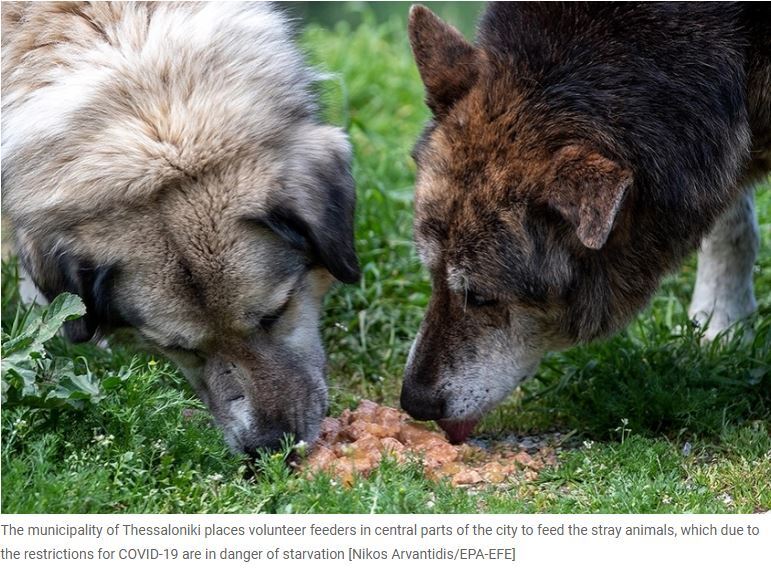 2020-04-30
2020-04-30Greece: Coronavirus threatens fate of abandoned dogs
Athens, Greece – As a nationwide lockdown enters its second month in Greece, animal rescue groups and shelters have become overwhelmed with the number of strays piling up in their facilities. Although dog adoption in central Athens and other urban city centres continues, as some seek companionship in the form of pets during the lockdown, international dog adoption from Greece to countries across Europe and the US has come to a standstill. A lack of resources means that shelters have been forced to stop taking in new strays, leading to more dogs on the street. It also means more dogs continuing to breed in the wild, which again increases the number of strays. Even before the coronavirus pandemic changed the nature of dog adoption in Greece, more dogs were being abandoned because people could no longer afford them and also due to a hunting culture. -
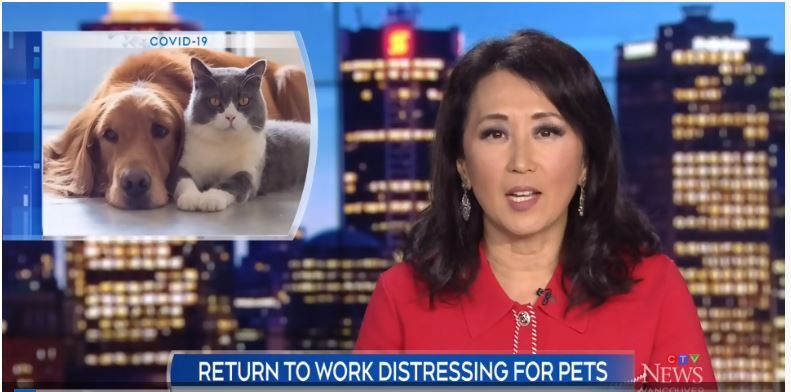 2021-07-28
2021-07-28Pets struggling to adapt as owners head back to the office
VANCOUVER -- Dog trainers and animal behaviourists are being flooded with calls from people seeking advice because their pets are having a hard time adjusting to their absence. Pet adoption rates soared during the pandemic, as people spent more time at home and found they enjoyed the company of a furry companion. Now that people are returning to the office – even those back for just a couple of hours a week – have noticed their dogs and cats appearing stressed. -
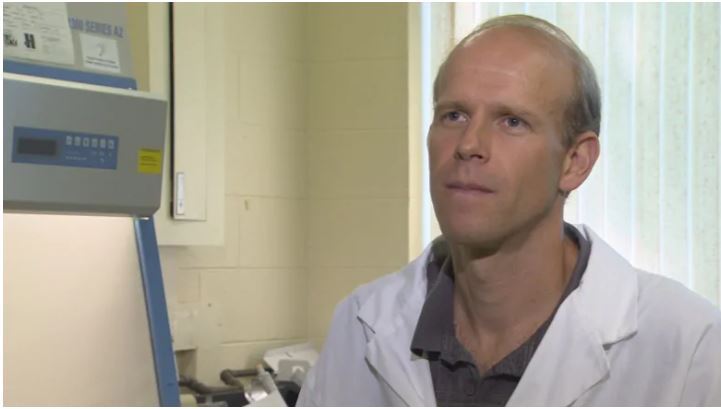 2020-10-26
2020-10-26Ontario dog first in Canada to test positive for COVID-19, but researcher says there are likely more
An Ontario dog living with four human COVID-19 patients is the first dog in Canada to test positive for the virus. But researchers say the discovery doesn't mean pet owners need to worry. The animal is from the Niagara Region and lived in a home where four out of six people had the virus, according to Dr. Scott Weese, chief of infection control at the University of Guelph's Ontario Veterinary College. "At last check, both dogs were fine, everyone in household sounds like they're doing well," he said. Weese described COVID-19 as a "human virus." There is some risk of animal-to-human transmission when it comes to mink, and experiments have shown infected cats can pass the virus to other cats, but that has not been shown in dogs, he said. "If your dogs has COVID or is infected with this virus, it got it from you or someone else in the household." -
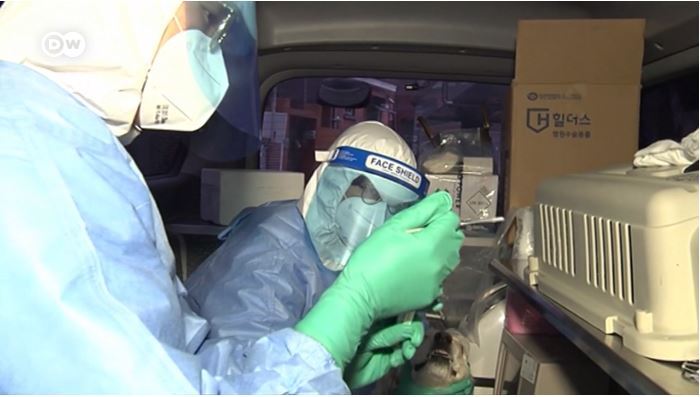 2021-02-10
2021-02-10Seoul offers COVID-19 tests for pet dogs and cats
Efforts are underway in Seoul to reduce the spread of COVID-19 among the pet population. The South Korean capital is offering free testing for cats and dogs exposed to carriers of the disease. The campaign to test and isolate pets comes just weeks after a kitten in Seoul became South Korea's first confirmed case of an animal with COVID-19. -
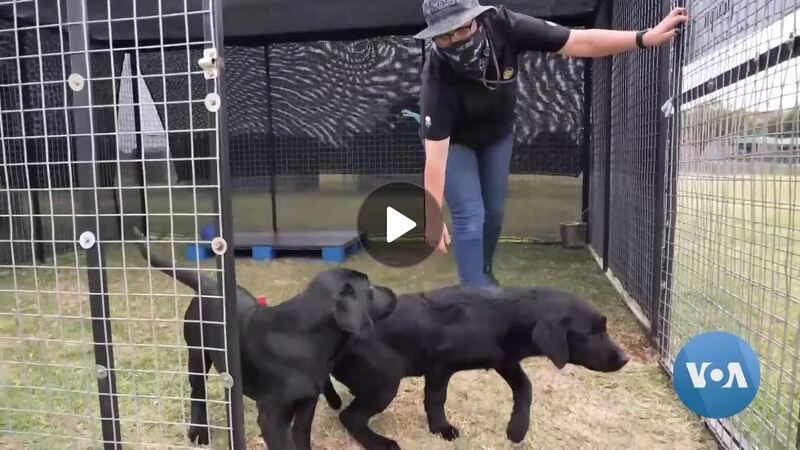 2021-05-15
2021-05-15South Africa Trains Dogs to Detect COVID-19 at Airports
In South Africa, a private security company that deploys dogs to sniff out illegal drugs and explosives at airports now is teaching the canine corps to detect COVID-19. Romain Chanson checks out the situation for VOA in this report from Johannesburg, narrated by VOA’s Carol Guensburg. -
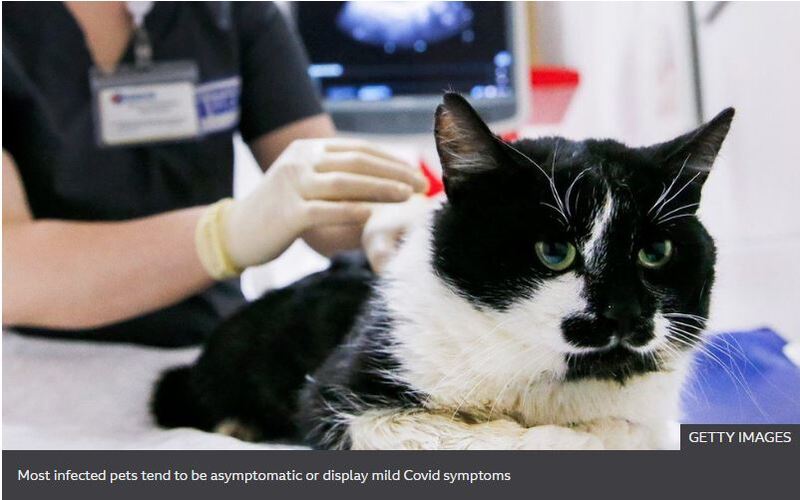 2021-07-01
2021-07-01Pets can catch Covid from owners, study suggests
Swabs were taken from 310 pets in 196 households where a human infection had been detected. Six cats and seven dogs returned a positive PCR result, while 54 animals tested positive for virus antibodies. "If you have Covid, you should avoid contact with your cat or dog, just as you would do with other people," Dr Els Broens, from Utrecht University, said. The researchers say the most likely route of virus transmission is from human to animal, rather than the other way round. "We can't say there is a 0% risk of owners catching Covid from their pets," Veterinary Microbiological Diagnostic Centre Dr Broens said. "At the moment, the pandemic is still being driven by human-to-human infections, so we just wouldn't detect it." -
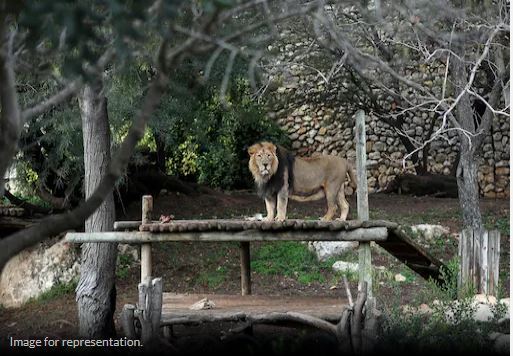 2021-05-05
2021-05-05Pets Are Safe From Covid, But Are Zoo and Street Animals? Here's What Experts Have to Say
After eight Asiatic lions tested positive for coronavirus at the Nehru Zoological Park in Hyderabad, making it the first case of animals contracting COVID-19 in India, questions have been raised again about the spread of the virus among animals. -
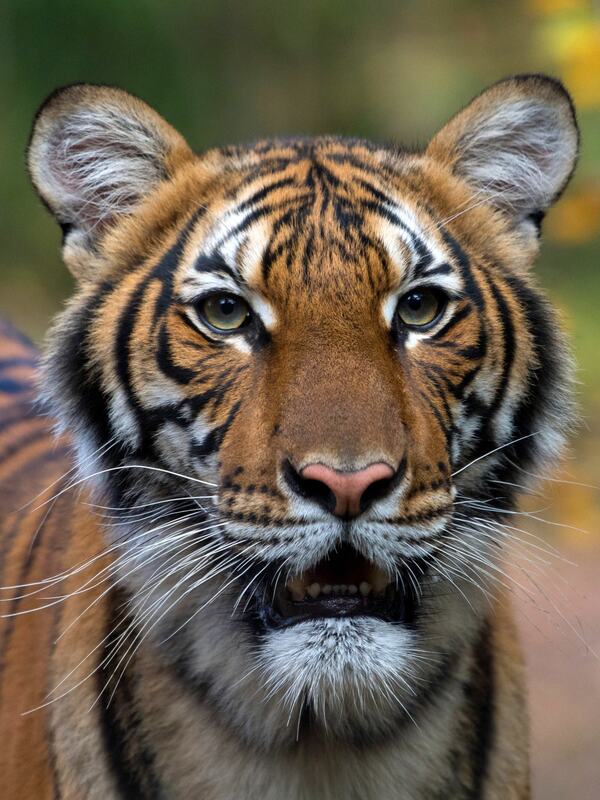 2020-04-07
2020-04-07Bronx Zoo Tiger Is Sick With the Coronavirus
A tiger at the Bronx Zoo has been infected with the coronavirus, in what is believed to be a case of what one official called “human-to-cat transmission.” “There is no evidence that other animals in other areas of the zoo are showing symptoms,” the Agriculture Department said. A pet cat in Belgium recently tested positive for the coronavirus, but the American Veterinary Medical Association said that not enough was known to change the current view that neither cats nor dogs appear to be able to pass the virus to people. The World Organisation for Animal Health says that there is no evidence that cats or dogs spread the disease to humans, but that anyone who is sick should take precautions in contact with their animals as they would with people. -
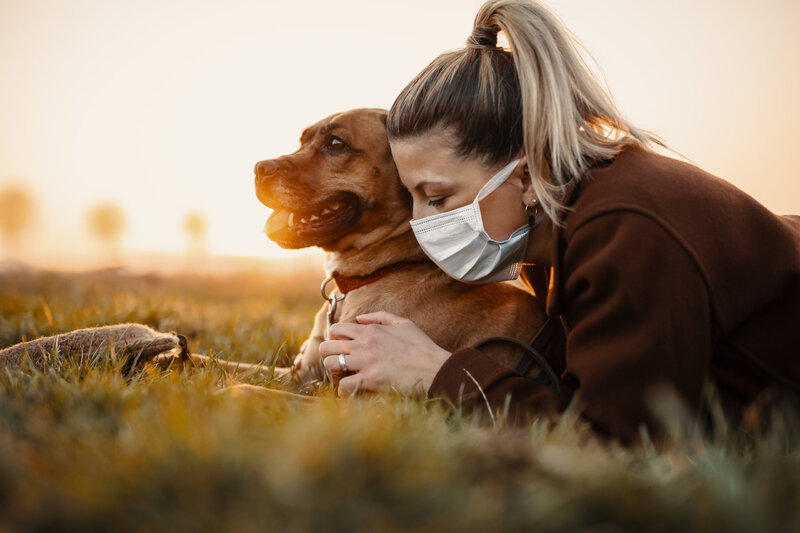 2020-10-27
2020-10-27New survey suggests human-animal bond stronger than ever amidst pandemic, lead-up to U.S. election
- As people navigate feelings of uncertainty due to the current global pandemic and U.S. election on November 3rd, one thing is clear: pets are playing a more important role in people's lives than ever before. In May, Banfield Pet Hospital released a survey looking at the impact of people quarantining at home with their pets. Today, the practice unveiled a follow-up survey that suggests the human-animal bond is growing even stronger and a shared love of pets can bring people together. -
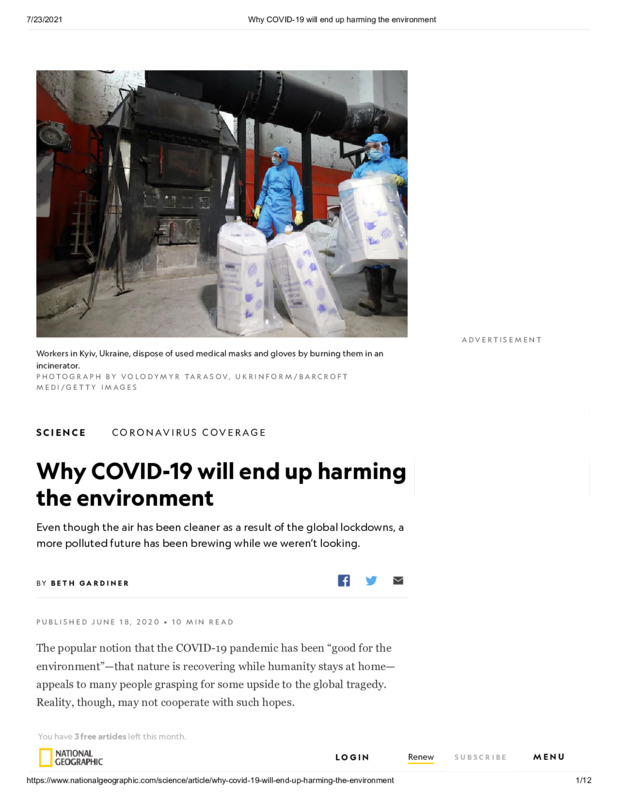 2020-06-18
2020-06-18Why COVID-19 will end up harming the environment
This article warns that COVID will only offer a brief respite from environmental problems like air pollution. Post-COVID, we may see even worse pollution and accelerated climate change. -
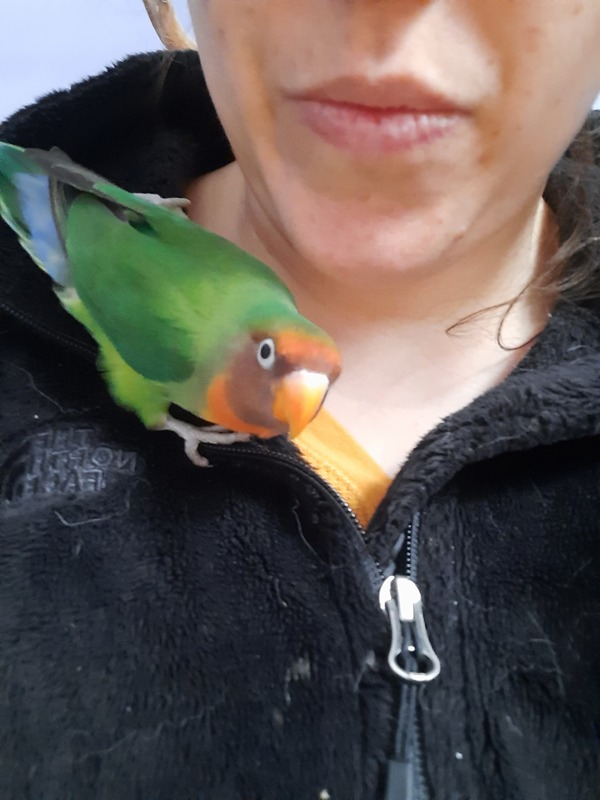 2020-07
2020-07Diminished Quality of Veterinary Care During the Pandemic
Our pets are a part of our family. So when their health is in jeopardy, it affects us all greatly. Early on in the pandemic, we had an emergency with our lovebird, Kermit. Our larger bird, an African Grey named Greycee, landed on top of Kermit's cage. Kermie proceeded to bite her toe through the cage bars, and Greycee bit back. Luckily we heard the scuffle and intervened immediately, but Greycee had created quite the puncture wound on Kermit's upper beak/nares. Normally these two are best buddies, so this was a suprising freak incident. I cleaned off Kermit's beak, but it looked bad and her breathing was shallow and rapid. Birds in respiratory distress can die rapidly. I rushed her to the emergency vet who told me that there was a 4 hour wait to be seen. I told them that Kermit wouldn't last 4 hours, so they agreed to see her immediately (for an additional fee of course) but I had to wait in the car. My already stressed and injured baby had to go into a strange place with strange people without her mom because of Covid. They stabalized her and sent her home for the night. I feared she wouldn't make it until the morning. Luckily, she pulled through the night. I called our vet immediately the next morning. It took several tries. Since you also had to wait in the car while there, and all conversations with the vet were over the phone, their phone lines were constantly busy. I finally got through, but they told me that despite the gravity of her condition there was no way they could get her in that day. Under normal circumstances they could, but with the new covid protocols every minute of every day was totally overbooked. I tried the emergency vet again and they had a 6 hour wait. You had to wait on site in your car too, which I couldn't do with my 4 year old daughter. Since Kermit is a bird, she cannot just go to any vet. There are only 2 avian vets in my area. I took a chance and called the other one and explained the situation. They were able to squeeze us in. Again I had to wait in the car and hand my baby off. She ended up staying the night. The blood from her wound had entered her lungs causing her breathing issues. She had recovered quite a bit by the next day, and the vet even allowed me in with social distancing and masks in order to show me how I needed to hand feed her for the next two weeks until her beak healed. At least because of the pandemic I was working from home at the time, so I could care for and monitor Kermit all day. Within a week she was back to her normal self. In the fall, our Dog Evie went to the vet because a suspicious lump had grown on her toe. Evie is absolutely terrified of the vet. She is also deaf and has limited vision, so it is harder to comfort her. She needs our touch and our smell for reassurance. Of course, jsut as with Kermit, we could not go in with her. The vet techs had to carry her in because she was shaking so badly in fear. She needed to be sedated to do the biopsy of the lump. The report came back positive for cancer. She had to go back in again to have the whole toe removed as the biopsy had not gotten it all. This time she had to stay nearly all day and be pumped with anxiety meds to keep her asleep until the procedure. It was thankfully successful, but she also needed a follow up visit, so more meds. The whole experience was traumatizing for both our animals and us. What's even worse is people were treated the same way. -
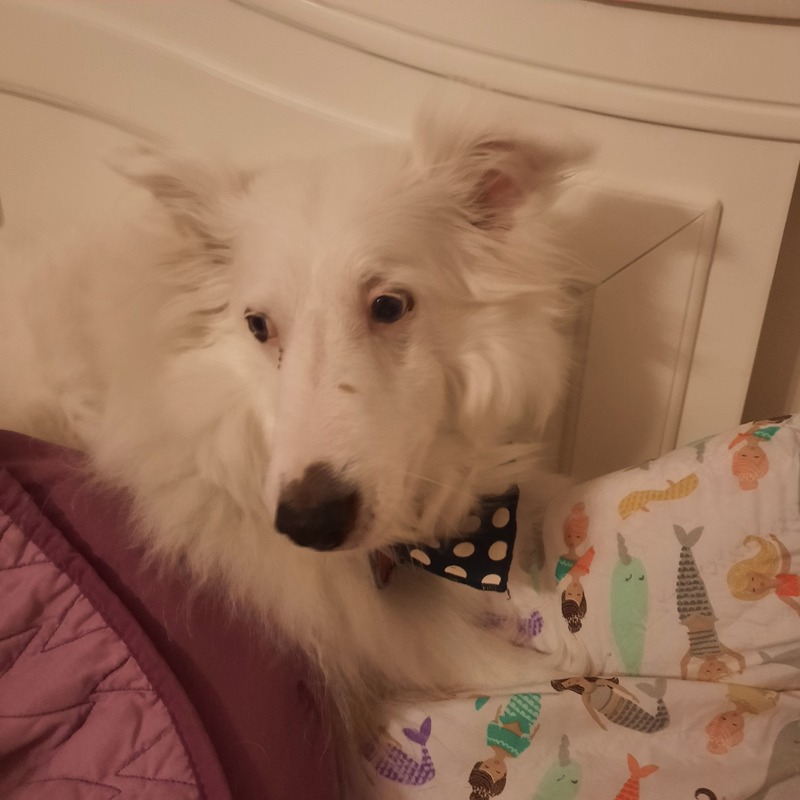 2021-07-03
2021-07-03A Dog's Tale
This is Hannah aka Hannah Banana. My husband and I adopted her May 4, 2013 from a rescue in St. Catherine's, ON. We live just over the border in Buffalo, NY. Hannah is a purebred Sheltie (Shetland Sheepdog), but purebred gone wrong. She is what is called a double merle. That means an irresponsible breeder bred two merle coated dogs together, which results in 25% of the litter being born deaf, primarily white in color, and with eye problems or missing eyes altogether. Hannah was approximately 4 years old at the time. The previous owners who surrendered her had had her for 2 years. They had adopted her from a shelter that had picked her up as a stray. Hannah was our 2nd double merle (we also have an Aussie with the same problem), so we were used to the unique problems associated with deaf and vision impaired dogs, but Hannah came with many more from a history of abuse and neglect. One of her biggest issues was that she was absolutely terrified of people, particularly men, and she hated small children. We worked with a trainer, we did agility twice a week, and did barn hunt once a week. She broke out of her shell a lot, but did not lose her fear of people. In 2016 my husband and I had our first and only child, Charlotte. Hannah was very aggressive towards her. She would bark and snap at her. We had to keep her separated a lot, and we worried about what the future would bring. She got a bit better when Charlotte could walk, but not to a comfort level. Once Charlotte was about 3, Hannah accepted that she was a human in the house but wanted nothing to do with her. She didn't really want to have much to do with any of us or our other dog except for at agility class. She wouldn't play with us and only tolerated petting for a short while. Fast forward to 2020. While COVID-19 was cause fear, anxiety, and depression in people, for Hannah it was just what she needed. After a few months, she became a whole new dog. Having all three of her humans home 24/7 seemed to alleviate a lot of her fears and anxieties. She completely bonded with Charlotte. She actually plays with her and snuggles with her and sleeps in her bed. Who knew this 12-year-old dog just needed constant companionship to heal her old wounds. Luckily, my career path changed during the pandemic (I am going back to school to pursue a PhD) and so I will continue to be home a lot of the time. While COVID did bring devastation to people across the world, for one little dog it was just the medicine she needed. -
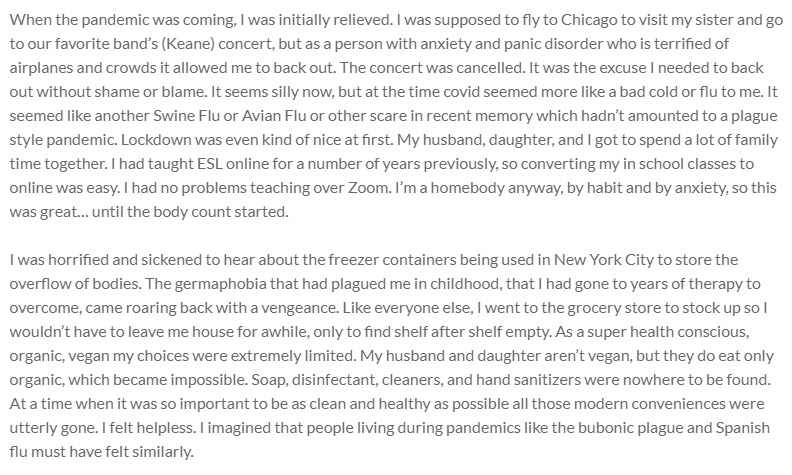 2021-06-28
2021-06-28My Pandemic Experience
When the pandemic was coming, I was initially relieved. I was supposed to fly to Chicago to visit my sister and go to our favorite band’s (Keane) concert, but as a person with anxiety and panic disorder who is terrified of airplanes and crowds it allowed me to back out. The concert was cancelled. It was the excuse I needed to back out without shame or blame. It seems silly now, but at the time covid seemed more like a bad cold or flu to me. It seemed like another Swine Flu or Avian Flu or other scare in recent memory which hadn’t amounted to a plague style pandemic. Lockdown was even kind of nice at first. My husband, daughter, and I got to spend a lot of family time together. I had taught ESL online for a number of years previously, so converting my in school classes to online was easy. I had no problems teaching over Zoom. I’m a homebody anyway, by habit and by anxiety, so this was great… until the body count started. I was horrified and sickened to hear about the freezer containers being used in New York City to store the overflow of bodies. The germaphobia that had plagued me in childhood, that I had gone to years of therapy to overcome, came roaring back with a vengeance. Like everyone else, I went to the grocery store to stock up so I wouldn’t have to leave me house for awhile, only to find shelf after shelf empty. As a super health conscious, organic, vegan my choices were extremely limited. My husband and daughter aren’t vegan, but they do eat only organic, which became impossible. Soap, disinfectant, cleaners, and hand sanitizers were nowhere to be found. At a time when it was so important to be as clean and healthy as possible all those modern conveniences were utterly gone. I felt helpless. I imagined that people living during pandemics like the bubonic plague and Spanish flu must have felt similarly. After a couple of weeks, quarantine started to feel more like a claustrophobic prison sentence than a family vacation. I missed my sister, my parents, my friends, my colleagues, and my students. On my birthday and Easter I just had to wave at my parents through the glass door. My favorite hobby- taekwondo, which I had started in order to relieve stress and help with my anxiety was taken from me. I had to do the classes online from my living room, which was nearly impossible. I felt trapped. A raging epidemic across the planet from which there was no escape. If I spent too much time thinking about it, I would start to feel the claw of panic. By the time summer arrived I was at breaking point. Luckily with summer we had some reprieve. Case loads declined, and I started meeting my best friend outside. We socially distanced ourselves and wore masks, but we were together and that was a start. By the end of summer she and her boyfriend were on our “quaranteam” that is we decided we could see each other since we weren’t seeing anyone else. In the fall school started. Since I teach at a Catholic school we were able to have school in person full time, though we had students in every grade who opted to go remote. But my bestie and I were back in the building with most of the kids, and I started to feel less trapped. I was going to stores masked and my daughter was also in school. But as soon as Thanksgiving hit everything changed again. So many people ignored all of the recommendations and restrictions and got together with family and friends. It made me so angry that people were so careless. A friend of mine had a large family in Pennsylvania who all got together for Thanksgiving. She didn’t go because she thought it was reckless. 8 out of 14 people at the family dinner got covid and 2 of them died. Then at Christmas, my great uncle passed. No funeral. No wake. Nothing. Schools shut down again. We were trapped. Then the vaccines came. It was nearly impossible to get one for a long time even if you were eligible. Slots filled as fast as they were posted. You needed to present a lot of proof of eligibility in order to get one. As a teacher, I was able to get mine earlier than many others. I got the Moderna. The first shot made me feel a little sick for a few hours, but with the second I had a fever of 103.5, aches, chills, nausea for 12 hours and a general malaise for 3 days. A friend of mine in taekwondo, who has some autoimmune problems, had a severe reaction after her first Moderna vaccine. She has had side effects for a few months now that are not going away. She has dizzy spells and heart palpitations regularly. She is undergoing testing and being monitored by the CDC. Despite some horror stories, the vaccine is still the absolute best thing that we could have hoped for. I would like my daughter to get it as soon as they open it to the under 12 population. A lot of people won’t get the vaccine because they are in the “Science is fake, I’m a Trump supporter” camp. In my opinion, Trump’s misinformation and mishandling of the pandemic cost tens of thousands of American lives, and his diversive legacy is going to cost us dearly for many years to come. It is now June again. School just finished. New York State is allowing people to enter buildings unmasked if they are vaccinated, but few people are actually requiring any proof. Given that the people with a cavalier attitude toward wearing masks are many of the same people who are against getting vaccinated, an honors system policy towards wearing masks is really just a no-mask policy. It is very frustrating to me that people can’t just deal with masks for a while longer to fully insure this disease’s eradication before we have another relapse and find ourselves back in quarantine again. -
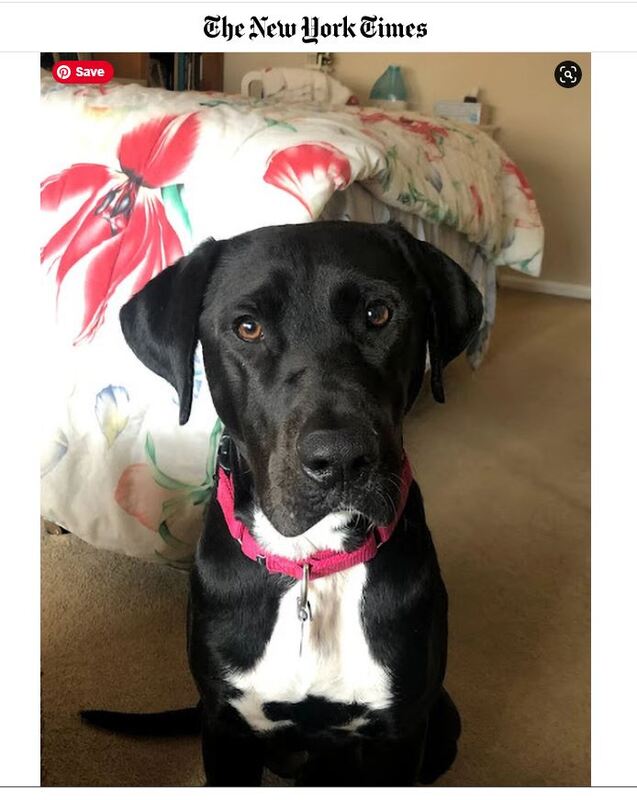 2021-05-31
2021-05-31No, People Are Not Returning Pandemic Dogs in Droves
This article explains that we should not be alarmed by the headlines that state that pandemic pets are returning to shelters as their owners return to work. The numbers just don't support that supposition. While abandonment rates are on the rise, they appear to simply be returning to pre-covid rates. -
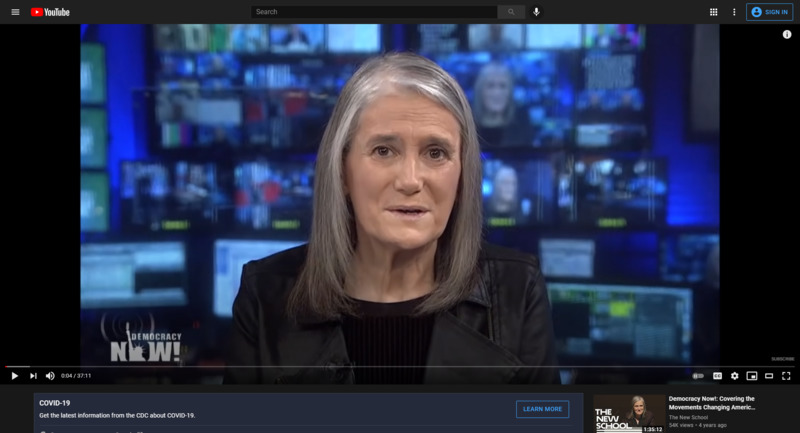 2020-03-18
2020-03-18How Will COVID-19 Change the World? Historian Frank Snowden on Epidemics From the Black Death to Now
This video is an interview the Democracy Now did with Frank Snowden, Professor Emeritus at Yale University early on in the pandemic (March 18, 2020). Dr. Snowden specializes in the history of epidemic diseases and the history of modern Italy. His father was the first African American ambassador to Italy. At the time of the interview, Dr. Snowden was in lockdown in Rome, Italy. He had gone there to research another project when the pandemic hit, so he changed his focus to studying covid-19. He contracted the disease himself, but was lucky enough to live through it. I was particularly interested in Dr. Snowden's views on the pandemic since I had watched his Yale lecture series on epidemics available on Youtube (https://www.youtube.com/playlist?list=PL3AE7B3B6917DE8E6) which was incredible in its thorough exploration of some of the worlds worst outbreaks. In the interview he states that an early modern Florentine would recognize a lot of governments' actions to combat covid-19 as very similar to those used by the Italian city-states and elsewhere in Europe to combat bubonic plague, especially the concept of quarantine. He also addresses the startling commonality between anti-Semitism during the first several plague outbreaks to the Sinophobia and xenophobia seen during our current pandemic. The interviewer also brings up a great question about the possibility of fascism arising out of strict government measures to combat disease. I was particularly curious to hear Dr. Snowden's response in light of the protests in the United States against quarantine and mask-wearing. He acknowledged that while it could be one outcome, it is not the only nor the most probable possibility. Many governments have voluntarily ended their strict measures during pandemics without devolving into fascist states. Now that the pandemic is, it seems, waning I believe it is abundantly clear that those Americans who feared that their freedoms were threatened by historically proven practices were both selfish and foolish. They and our ineffective and dangerous leadership cause the United States to become a hotbed for Covid-19, while other countries who swiftly enacted and enforced lockdown measures and mask mandates, such as New Zealand and Italy, recovered much more quickly. I contend that Donald Trump and his sheep are responsible for thousands of unnecessary deaths. -
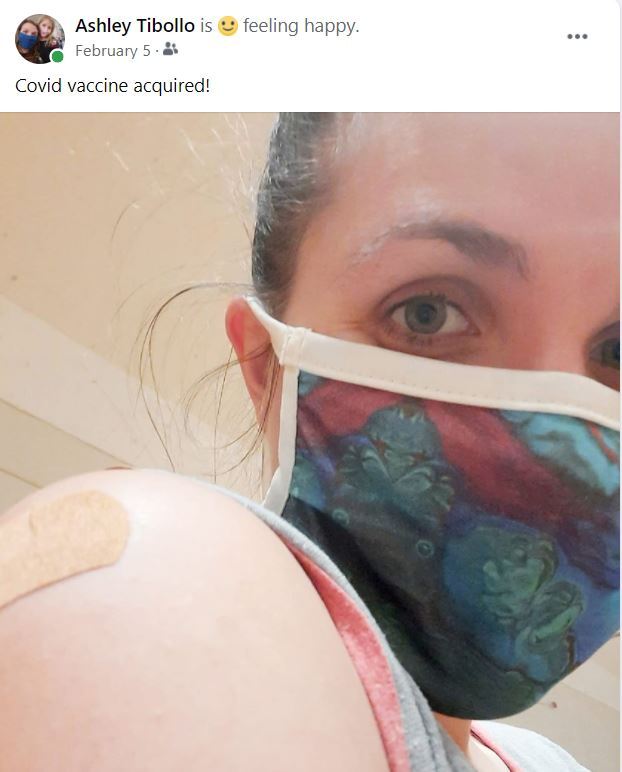 2021-06-03
2021-06-03My Covid Vaccine Experience
These are the two Facebook posts I made the day I got my first shot and my second. I received the Moderna vaccine. As a teacher, I was able to get mine sooner than many others. Many people I know had (and still have) reservations about getting the vaccine. I believe in science. I believe in vaccines. It is disheartening and dangerous to see so many Americans throwing away an opportunity to protect themselves, their families, and their community because of politics. Science should not be political. The vaccine did make me feel ill, especially the second one, but it was temporary. I would do it a hundred more times if I had to. A friend of the family said they would not get the vaccine because, "What's in it for me? Even if I get Covid, I am young and healthy, unlikely to die." I found that statement alarmingly self-centered. Getting the vaccine isn't about you as individual as much as it is about you protecting your community and the world. As the saying goes nowadays, "Until all of us are safe, none of us is safe."
